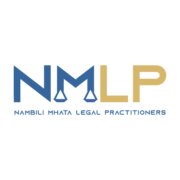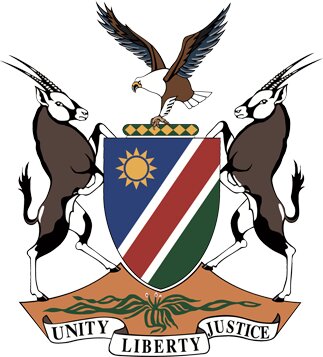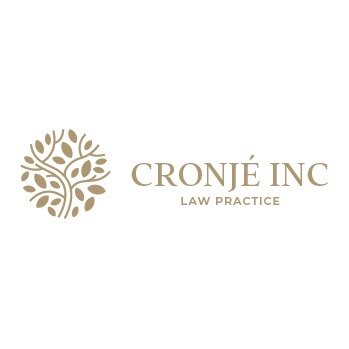Best Brokerage Lawyers in Namibia
Share your needs with us, get contacted by law firms.
Free. Takes 2 min.
Free Guide to Hiring a Real Estate Lawyer
Or refine your search by selecting a city:
List of the best lawyers in Namibia
About Brokerage Law in Namibia:
Brokerage law in Namibia governs the relationship between brokers and their clients in real estate transactions. It covers the legal requirements and responsibilities of brokers, as well as the rights of clients. This area of law ensures that real estate transactions are conducted fairly and legally.
Why You May Need a Lawyer:
You may need a lawyer in brokerage matters if you are facing disputes with your broker, need assistance with contract negotiations, require legal advice on real estate transactions, or if you believe your rights as a client have been violated. A lawyer can help protect your interests and navigate the complexities of brokerage law.
Local Laws Overview:
In Namibia, the law governing brokerage is primarily centered around the Estate Agents Act of 1976. This legislation outlines the requirements and regulations for estate agents, including licensing, conduct, and obligations to clients. It is important to familiarize yourself with this act if you are involved in a real estate transaction.
Frequently Asked Questions:
1. What are the qualifications required to become a licensed broker in Namibia?
To become a licensed broker in Namibia, one must meet the educational requirements set by the Estate Agents Board and pass an exam.
2. What are the responsibilities of a broker towards their clients?
A broker is obligated to act in the best interests of their clients, provide honest and accurate information, maintain confidentiality, and disclose any conflicts of interest.
3. Can I file a complaint against a broker who has acted unethically?
Yes, you can file a complaint with the Estate Agents Board if you believe a broker has acted unethically or violated the law.
4. What are some common disputes that occur in brokerage transactions?
Common disputes include breach of contract, misrepresentation of property, failure to disclose defects, and disputes over commission payments.
5. How can a lawyer help me in a brokerage transaction?
A lawyer can provide legal advice, review contracts, negotiate terms, represent you in disputes, and ensure your rights are protected throughout the transaction.
6. Is it mandatory to have a lawyer present during a real estate transaction in Namibia?
While it is not mandatory to have a lawyer present, it is highly recommended to seek legal advice to ensure your interests are protected.
7. How long does it take to resolve a brokerage dispute through legal channels?
The time taken to resolve a brokerage dispute through legal channels can vary depending on the complexity of the case and the parties involved.
8. What are the potential consequences of breaching brokerage laws in Namibia?
Breaching brokerage laws in Namibia can result in fines, disciplinary action, loss of license, and legal consequences.
9. Are there any alternative dispute resolution methods for brokerage disputes?
Yes, alternative dispute resolution methods such as mediation or arbitration can be used to resolve brokerage disputes outside of court.
10. How can I find a reputable lawyer specializing in brokerage law in Namibia?
You can search for lawyers specializing in brokerage law through legal directories, professional associations, and recommendations from trusted sources.
Additional Resources:
For additional resources and information on brokerage law in Namibia, you can contact the Estate Agents Board or seek advice from the Law Society of Namibia.
Next Steps:
If you require legal assistance in a brokerage matter in Namibia, it is advisable to consult with a lawyer specializing in real estate law. They can provide you with guidance, representation, and support throughout the process.
Lawzana helps you find the best lawyers and law firms in Namibia through a curated and pre-screened list of qualified legal professionals. Our platform offers rankings and detailed profiles of attorneys and law firms, allowing you to compare based on practice areas, including Brokerage, experience, and client feedback.
Each profile includes a description of the firm's areas of practice, client reviews, team members and partners, year of establishment, spoken languages, office locations, contact information, social media presence, and any published articles or resources. Most firms on our platform speak English and are experienced in both local and international legal matters.
Get a quote from top-rated law firms in Namibia — quickly, securely, and without unnecessary hassle.
Disclaimer:
The information provided on this page is for general informational purposes only and does not constitute legal advice. While we strive to ensure the accuracy and relevance of the content, legal information may change over time, and interpretations of the law can vary. You should always consult with a qualified legal professional for advice specific to your situation.
We disclaim all liability for actions taken or not taken based on the content of this page. If you believe any information is incorrect or outdated, please contact us, and we will review and update it where appropriate.
Browse brokerage law firms by city in Namibia
Refine your search by selecting a city.















